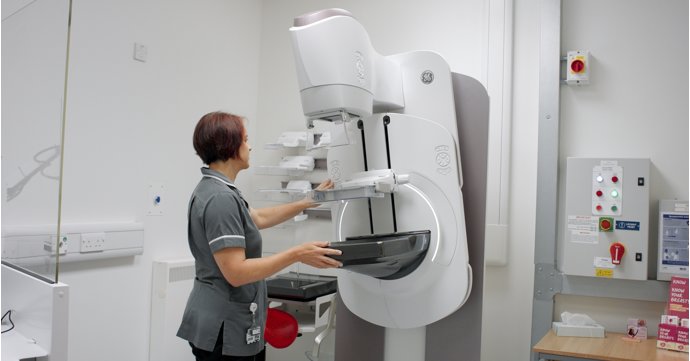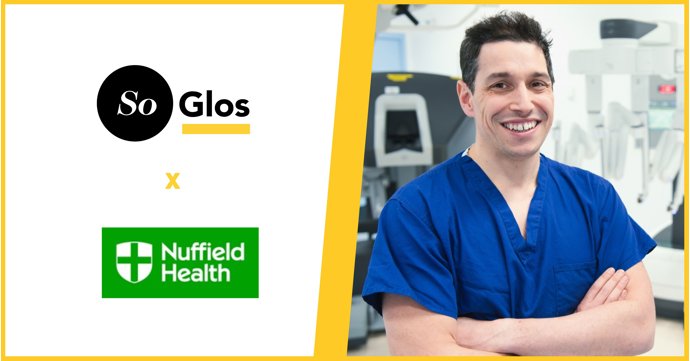As we get older, cataracts affect many of us, but acting early can reduce the impact they have on the quality of your life, according to Nuffield Health Cheltenham Hospital.
SoGlos chats to its experts to find out which signs to look for — and what can be done to alleviate the problem.
Are cataracts a problem for many people?
Cataracts are a very common eye condition and many people aged over 60-years-old will have at least some amount softening of their vision.
A cataract is a clouding of the lens in your eye, which causes your sight to become misty. Cataracts slowly get worse and your sight gets cloudier over time, but the vast majority can be treated successfully.
How does the eye work as it ages?
Light enters your eye through your cornea (the clear window at the front) and the lens ensures this light is focused correctly to form an image when it reaches the retina. Just like glasses lenses, in order to see clearly, the lens in your eye needs to be clear.
Throughout your life, your lens changes shape to help you see things clearly in the distance and close up. This is called accommodation of vision.
As we get older, the lens isn’t able to change shape as well as it used to and when this happens, most people can see clearly in the distance but need reading glasses for close work.
How does a cataract affect your sight?
Cataracts could affect your sight in a number of ways. Your vision may become blurred or appear misty; you may be dazzled by lights; or your coloured vision may seem washed out or faded.
Most people will eventually develop a cataract in both eyes, though one eye may be affected before the other.
If a cataract isn’t removed, eventually it will be like trying to see through a frosted window. Even if your cataract gets to this stage, it can still be removed and your sight will be almost as it was before the cataract developed.
What causes a cataract?
The most common reason is growing older. Most people over the age of 60 have some amount of cataract and this gradually worsens with age.
Apart from getting older, other common causes of cataracts include diabetes; medications such as steroids; and longstanding eye conditions. They can also be present at birth (congenital cataracts).
What treatment is available for cataracts?
The only effective treatment for cataracts is surgery to remove your cloudy lens and replace it with an artificial clear lens implant. New glasses will not help if the cataract is too advanced — and cataract surgery is one of the most successful operations performed.
In the past, eye surgeons often waited until the cataract became 'ripe' before removing it, but with modern surgical precision and techniques, the operation is usually done as soon as your eyesight interferes with your daily activities, such as reading and driving, especially at night.
What does the operation involve?
Cataract surgery is usually done with a local anaesthetic and typically takes about 20 minutes. Small cuts are made and the cataract is removed in small pieces using sound waves (phacoemulsification) so patients don’t need stitches.
The artificial lens implant is then simply placed inside the eye.
How soon do patients recover?
After surgery, patients can usually go back to their everyday activities within a few days.
They'll be given eye drops to use for up to four weeks, but the majority of people have no problems following cataract surgery and are up and about the next day.
What can patients expect to see after the operation?
Usually, everything in the distance will be clear, but your reading vision in the operated eye may be blurred. This is because the standard lens implant isn’t able to provide clear vision for both distance and near.
However, premium lenses are also available at Nuffield Health Cheltenham Hospital and offer the potential to see clearly at more than one point of focus.
Premium lenses are not available on the NHS and are not suitable for everybody, but your surgeon will help you make the best decision, based on your individual needs.
We have eight consultants specialising in cataract surgery at Nuffield Health Cheltenham Hospital.
To book an appointment with a consultant ophthalmic surgeon, call Nuffield Health Cheltenham Hospital on (01242) 246574.



















